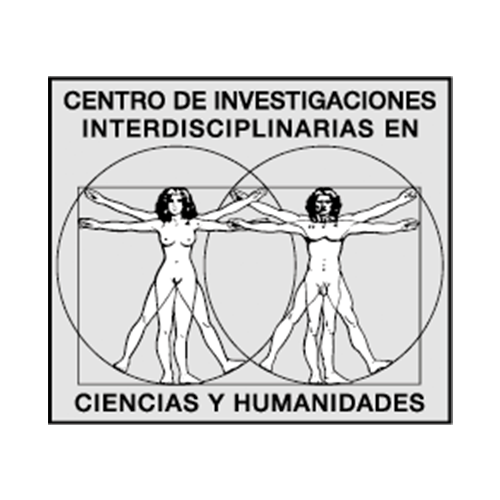About the Journal
Focus and Scope
Thematic coverage and scope
Mundo Nano. Revista Interdisciplinaria en Nanociencias y Nanotecnología is an open access scientific publication that does not charge article-processing fees. All the texts submitted for possible publication are previously reviewed by peers under the double-blind modality. It is aimed to specialists in nanosciences and nanotechnology. Its goal is to disseminate the main research results in the field, including their social, environmental, ethical and legal implications. Owing to its nature it is a publication with an international scope. It exclusively publishes research papers and revisions of the field of interest, in Spanish, English or Portuguese languages. The journal conducts by a Code of Ethics based upon regulations by the Committee of Publication Ethics (COPE), which the journal adheres to.
It is published twice a year (available in the months of January and July), in electronic format, published and sponsored as of 2008, uninterruptedly, by Universidad Nacional Autónoma de México.
Peer Review Process
Editorial review
The authors who submit an article for possible publication in Mundo Nano should send —complete and in their final version— the documents indicated in Submission guidelines,
http://computo.ceiich.unam.mx/webceiich/mundoNano/Instructivo%20en%20ingles.docx
as well as the originality form available at:
Once the editorial team validates that the submission meets all the requirements, the text will be sent to editorial review, which comprises the following stages:
- Accredit a revision using software IThenticate, approved by the Editorial Committee, for plagiarism detection, only after this will it be possible to go on to the following stages of the editorial review.
- It will be verified that the submitted text correlates with the focus and scope of the journal. Woks that do not explicitly regard the nano aspect as a relevant component will not be considered.
- It will be verified that the text meets each and every indication as stated in requirements for manuscript submission and requirements for manuscript delivery as well as guidelines for authors.
- It will be verified that the reported bibliography is relevant and updated and that it is duly listed following the Chicago citation style, see:
http://www.chicagomanualofstyle.org/tools_citationguide.html - In accordance with the editorial policy guidelines, approved by the Editorial Committee, priority will be given to texts whose bibliography is electronically managed and with active hyperlinks to the corresponding DOI, when applicable.
Once the submitted article accredits the editorial review, the corresponding author will be formally notified of the registration and beginning of the academic review process.
Academic review
The articles must favorably accredit the process of academic review which will be performed under the modality of double-blind peer review, in which the identity of both authors and reviewers will be anonymous, to do so the following guidelines will be taken into account:
- The articles that accredit the editorial review will be sent to academic experts in the same disciplinary and thematic area as the submitted text. The reviewers will be selected from the referee panel —composed of specialists from national and international institutions— who will comment on the relevance and academic quality of the submitted text and will rule on the feasibility to publish the text in question.
- The reviewers will be in charge of revising and analyzing the academic, theoretical and methodological relevance of each and every article assigned to them. They will be responsible for revising the explicit presence of a theoretical-methodological section, as well as its congruency with the field of studies, coherence between academic output and relevance of findings, and also the up-to-dateness and suitability of the bibliography resorted to.
- All the texts will be sent to three experts —ascribed to an institution other than the authors’— who will express their comments. In case of discrepancy between reviews, a third reviewer will be asked to resolve the ruling.
- Finally, on the basis of the reviewers’ recommendations, the decision of the editors of Mundo Nano will be:
a. Recommend its publication without modifications.
b. Recommend its publication with minor changes, which do not make it necessary a second review by the referees.
c. Condition its publication on making major changes, which makes it necessary a new revision by the referees. This process may repeat up to three rounds, if upon reaching this point the document is not recommended for publication yet, it will be rejected with no option to resend it.
d. Publication is not recommended. - For a text to be approved for publication it is indispensable that, at least, two of the three rulings are positive.
- The editors will ensure, in all cases, that the reviews delivered to the authors have solid arguments to support the editorial decision.
- The results of the editorial review process will be unappealable in all cases.
- In case of observations to the articles, the authors will have a 15-natural-day deadline to send the editor-in-chief the new version of the work. Should this deadline not be met, the document will start the process afresh.
- The time for the document to be sent to review will be dependent on the number of articles in the waiting list. The referees, upon receiving the article, will have four weeks to perform the review and deliver the result.
- The accepted documents will start the edition process (proofreading, metadata marking, layout, etc.), to later be included in the corresponding fascicle, according to the decision of the editors in charge.
- Once the editorial process concludes (proofreading, metadata marking, layout, etc.), the preliminary version of the text will be sent to the authors for their final revision and approval. The authors will have a 3-natural-day deadline to deliver their approval, should they not comment within such deadline, the journal’s editorial coordination will assume the authors have tacitly approved.
- The assessment of the selected reviewers will follow the reviewing format available at:
http://computo.ceiich.unam.mx/webceiich/mundoNano/Review%20form%20Mundo%20Nano.docx
Open Access Policy
This journal is of immediate free access to its content, under the principle of making the published research available to the public free of charge.
The authors who publish in Mundo Nano accept the following conditions:
- In accordance with the copyright legislation, Mundo Nano. Revista Interdisciplinaria en Nanociencias y Nanotecnología recognizes and respects the authors’ moral as well as patrimonial rights, which will be transferred —in a non-exclusive manner— to the journal for its dissemination in open access.
- Mundo Nano does not charge the authors for receiving and processing articles for publication.
- All the texts published in Mundo Nano —with no exceptions— are distributed under a Creative Commons license, which allows third parties to use the publications as long as the works’ authorship and the first publication in this journal are mentioned. Atribución-No Comercial (CC BY-NC 4.0 Internacional
- The authors can enter into other independent and additional contractual agreements for the non-exclusive distribution of the version of the article published in Mundo Nano, for example, to include it into an institutional repository or disseminate it through other printed or electronic media, as long as it is clearly and explicitly mentioned that the work was first published in Mundo Nano. Revista Interdisciplinaria en Nanociencias y Nanotecnología.
- For all the above, the authors must send the patrimonial rights transfer letter for the first publication duly filled and signed, available at:
http://computo.ceiich.unam.mx/webceiich/mundoNano/Transfer%20letter%20of%20patrimonial%20rights.docx
Code of ethics
Mundo Nano. Revista Interdisciplinaria en Nanociencias y Nanotecnología adheres to the code of ethics for the acting and performance of personnel involved in the publication process of this journal (editors, editorial committee, authors and reviewers) established by the Committee on Publication Ethics (COPE) and available at:
https://publicationethics.org/resources/code-conduct
Sanction policies for non-ethical conduct
The set of inadequate conducts includes: falsification of data, manipulation of data in favor of certain results, the submission of an article with redundant information or previously or simultaneously submitted to other journal, the indiscriminate use of self-citations, as well as unjustified or ghost authorship. In case of identifying any of the practices above in a submitted article, the Editorial Committee will evaluate the case and will sanction according to the sort of wrongdoing.
Plagiarism detection
In Mundo Nano. Revista Interdisciplinaria en Nanociencias y Nanotecnología, IThenticate, specialized software to detect plagiarism, is used. The texts received will undergo a revision before being sent to editorial and academic review, they will be rejected if the percentage of similarity with other text published or available on the internet is above 50%.
If the use of redundant or duplicated information in a submitted text is detected or suspected, the procedure to follow is the one COPE summarizes in the following flowchart:
https://publicationethics.org/files/Spanish%20%281%29.pdf
Guidelines and best editorial practices
These guidelines refer to the best editorial practices by COPE and are available at:
http://publicationethics.org/resources/guidelines
Functions and responsibilities of the Scientific Committee
- Promote the submission of articles for possible publication in the journal among the national and international academic community.
- Suggest academic guidelines to update the journal’s editorial policy.
- Promote the dissemination of the journal in national and international academic media.
- Participate as reviewers of works submitted for possible publication or recommend other experts as reviewers.
Functions of the Editorial Committee
- Promote the submission of articles for possible publication in the journal among the national and international academic community.
- Support in the selection of reviewers for the submitted works, as well as deliberate on the best options for reviewers when necessary.
- Decide on the relevance of the materials received, on the basis of the experts’ reviews.
- Approve the content proposed for each number of the journal.
- Review and assess each issue published.
- Collaborate with the corresponding parts to maintain the periodicity established for publication.
Functions and responsibilities of the editor-in-chief and editors
- Coordinate the actions that lead to meet the journal’s goals.
- Ensure a high academic level in the published content.
- Receive the works submitted for possible publication and ask for the reviews to the academic peers.
- Monitor the fulfilment of the reviewers’ recommendations.
- Report the authors on the stage of the editorial process in which the submitted text is.
- Report the Editorial Committee the reviewing process on all the materials received, being careful with confidentiality.
- Propose the Editorial Committee the content of each journal number, on the basis of the texts corrected and approved at that time.
Functions and responsibilities of the associate editor
- Coordinate the editorial process review.
- Plan and coordinate the journal’s editorial production process.
- Supervise the technical processing of the materials approved by the Editorial committee, once the established academic requirements have been met.
- Supervise proofreading and the journal’s technical quality.
- Collaborate to maintain the periodicity established for the journal publishing and that the dissemination and distribution of each number begins within the first month of the corresponding period.
Responsibilities of the technical editor
- Run Ithenticate in order to detect plagiarism.
- Formatting the works approved to be published.
- Include the corrections into the formatted texts.
- Upload the works to OJS.
- Updating of contents and design of
Authors’ responsibilities
- Follow the journal’s publication requirements regarding: originality, unpublished texts, relevance.
- Present their results with honesty, without lying, falsifying or manipulating data.
- Assume collective responsibility, if this is the case, for the presented and published work.
- Funding sources and relevant conflicts of interest must be stated in the article.
- Quote the work of others accurately and only refer publications mentioned in the text.
- The authors must report the editors if the results have been previously published or if various results or multiple analysis one same dataset are being considered for publication somewhere else. The authors must provide copies of the related publications or works sent to other journals.
Reviewers’ responsibilities
- Accept the revision of texts that fall into their area of expertise so that a suitable review is performed.
- Declare from the beginning of the process if there is a conflict of interest. If the identity of any author is suspected, notify the journal if this situation poses any conflict of interest.
- Reject the revision immediately if it is no possible for them to deliver it within the deadline.
- Produce their assessment on the basis of originality, contribution of the article to the topic, methodology, relevance and up-to-dateness of the bibliography reported; style, coherence and quality and structure in the drafting of the text.
- Report the journal, immediately, if over the review they find or discover they do not have the necessary experience to assess all the aspects of the text.
- Their criticisms shall be objective, specific and constructive.
- Clearly state the approval, rejection or conditioning of the text.
- Produce their assessment within the deadline.
- Respect confidentiality during and after the review process.
- Not use contents of the revised or in-revision text.
- Do not involve other people in the assigned revision.
- Communicate the journal if similarity with other text they have revised is detected or if any sort of plagiarism is noticed.
- Transferring the responsibility to perform a review to another person, assistant or collaborator is forbidden.




